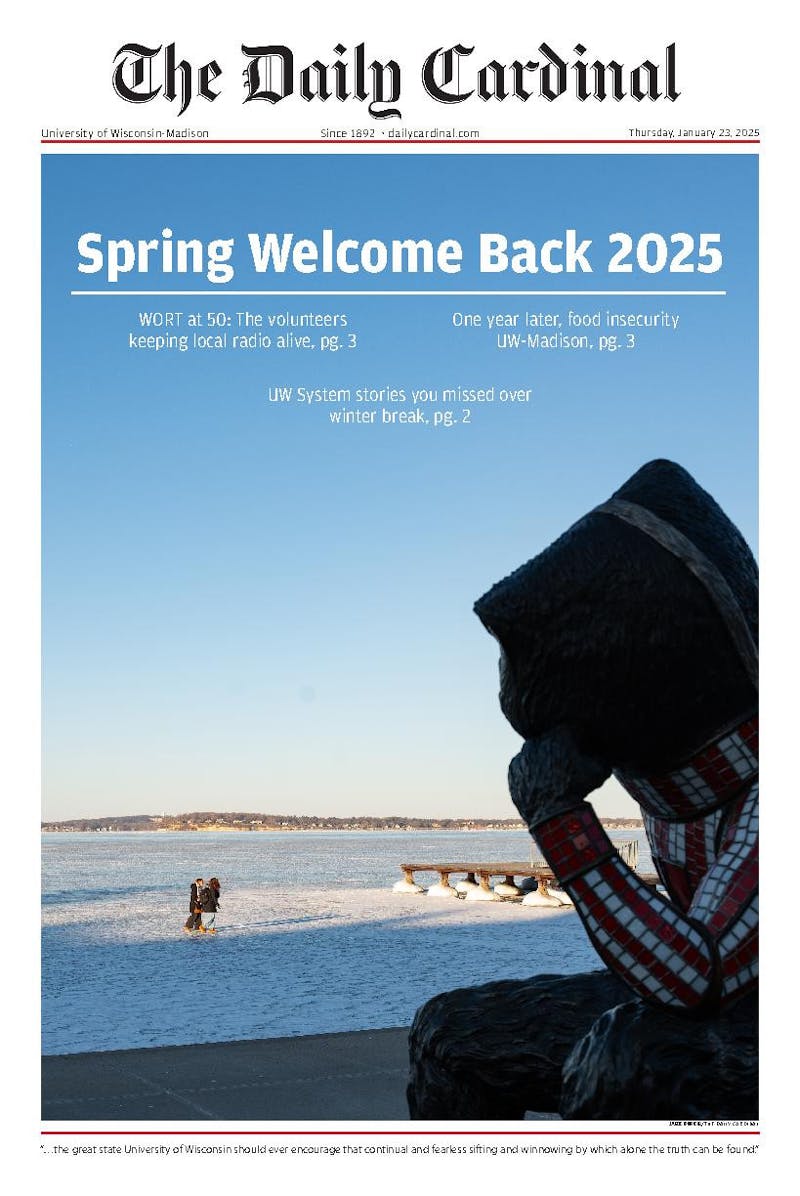The Wisconsin School of Business (WSB) requires bold and visionary changes in order to address the increasing injustices in our global economy. Instead of only teaching the traditional for-profit corporate business model, the business school must be proactive in developing future business leaders with the tools to solve societal challenges.
The Business Roundtable is comprised of the CEOs of over 150 major American companies. From 1997 to 2019, it has defined the purpose of a corporation as existing to principally serve shareholders.
Profit for shareholder value. This decades-long mantra has defined the US economy and therefore business school curriculums across the country, including that of WSB.
The problem with profit-maximizing business models is that they fail to account for their impacts on society. With money as the ultimate goal, companies are profiting off of injustice and the destruction of our planet.
Meanwhile, the University of Wisconsin - Madison has produced more current Fortune 500 CEOs than any other university. WSB has developed a reputation for producing corporate leaders across all of America. This excellence heightens the responsibility to develop ethical and informed business graduates. Yet, WSB is failing to do so.
The Paris Agreement and the Intergovernmental Panel on Climate Change states that in order to limit temperature rise to 1.5 degrees Celsius, our world will require a carbon-neutral economy by 2050. Carbon neutrality allows for some CO2 emissions but requires that those emissions be absorbed out of the atmosphere through carbon solutions (e.g. forests). Since our projected global capacity for capturing carbon is well below current emissions, a carbon-neutral economy essentially mandates every business in the world to eliminate or dramatically reduce carbon emissions.
Despite this, WSB does not require sustainability business classes within its curriculum, meaning an overwhelming majority of graduates are unaware of the business implications and solutions to climate change.
Additionally, WSB fails to address key social injustices within our society such as the gender wage gap, LGBTQ+ discrimination, systemic homelessness, or the effects of lobbying and specials interests in our democracy. And that’s just the start.
Income and wealth inequality in America continues to skyrocket, to the point where the richest 0.1 percent of Americans make more income than the bottom 90 percent combined. S&P 500 CEOs got paid 361 times more than the average US worker in 2017, compared to 42 times in 1980. All this while Millennials are in worse financial shape then “every other generation of young adults born since the Great Depression.” Yet, these topics are never discussed in the Business school.
Nor does WSB address the racial wealth gap or redlining. In 2014, the median net worth was $130,800 for non-Hispanic white households, $17,530 for Hispanic households, and $9,590 for black households. This large divide stems primarily from redlining, which is the systematic denial of housing and bank services based on race. While overt redlining became illegal with the Fair Housing Act of 1968, it still exists today.
During the subprime mortgage crisis, African Americans and Latinx folks were 2.4 times more likely than white applicants to receive a subprime loan. In 2015, Associated Bank, the largest bank headquartered in Wisconsin, reached a $200 million dollar settlement for discriminatory lending practices between 2008-2010. Unless these subjects find their way into the curriculum, this history of discrimination in the finance and real estate industry will continue to be perpetuated.
Finally, mass incarceration — the greatest injustice of our time — in which there are more black men under the watch of the criminal justice system then there were enslaved in 1850. Microsoft, Starbucks, Boeing, Verizon, McDonald’s, and many more have all directly or indirectly used prison labor in the past, paying as little as $0.02 an hour in order to cut costs and increase profits for shareholders.
The consequences of a profit-maximizing economy are devastating and industry trends are beginning to take notice. In August of 2019, 181 CEOs from the Business Roundtable released a new purpose for their corporations, which will operate to equally serve all stakeholders: customers, employees, suppliers, communities, and shareholders.
It is time for the Wisconsin School of Business to follow suit.
With a new Dean and an institutional strategic planning process underway, WSB has an opportunity to create a forward-thinking, sustainable and justice-orientated curriculum. By being proactive and embracing these changes head-on, WSB can create a competitive advantage by setting a new standard for business schools across the world.
Conversations with over twenty-five WSB faculty and administrators have revealed to me that there is a quiet, but widespread resolve to address these subjects within the curriculum. The unfortunate reality is that change in institutions of this size is often slow and too incremental to solve such pressing issues. Bold leadership from all corners of Grainger will be required to create necessary and innovative changes.
Finally, to the students: School administrators will not solve these issues on their own. They face institutional and political barriers that limit their capacity for change. We do not. We are paying students and more importantly, the ones who must face these growing societal challenges.
Democracy is a verb. If you feel passionate about these issues then it is your responsibility to speak up and take action.
Creating an environmentally and socially just world will require advocating within every single institution in our society. This is the one-square-mile approach to activism that we need. The Wisconsin School of Business will not solve climate change or social injustices on its own, but it is one small part of the solution.
David is a senior studying International Business, Management, and Entrepreneurship. He is also the president of SEBA, Social and Environmental Business Advocates, here at UW-Madison. Do you think the School of Business should address topics such as climate change in their curriculum? Send all comments to opinion@dailycardinal.com.






